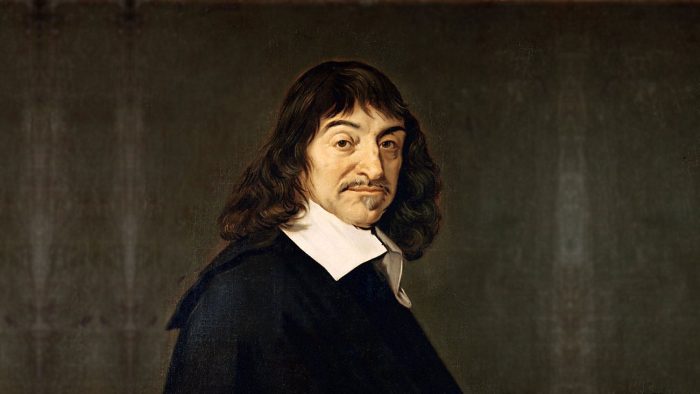René Descartes 1596–1650 was a French scientist, mathematician, and philosopher, and he was one of the key figures in the scientific revolution.
The Cartesian coordinate system was named after him, and he is credited as the father of analytical geometry, used in the discovery of infinitesimal calculus and analysis.
René Descartes is the originator of Cartesian skepticism (a form of methodological skepticism), that puts all beliefs, ideas, thoughts, and matter in doubt.
He offers the following analogy:
A person had a basket full of apples and, being worried that some of the apples were rotten, wanted to take out the rotten ones to prevent the rot spreading. How would he proceed? Would he not begin by tipping the whole lot out of the basket? And would not the next step be to cast his eye over each apple in turn, and pick up and put back in the basket only those he saw to be sound, leaving the others?
Those who have never philosophized correctly have various opinions in their minds which they have begun to store up since childhood, and which they therefore have reason to believe may in many cases be false. Now the best way they can accomplish this is to reject all their beliefs together in one go, as if they were all uncertain and false. They can then go over each belief in turn and re-adopt only those which they recognize to be true and indubitable.
Cartesian skepticism is also known as Cartesian doubt, methodic doubt, methodological skepticism, Universal Doubt, or hyperbolic doubt.
Many elements of his philosophy have precedents in late Aristotelianism, Descartes laid the foundation for 17th-century continental rationalism, later advocated by Baruch Spinoza and Gottfried Leibniz, and opposed by the empiricist school of thought consisting of Hobbes, Locke, Berkeley, and Hume.
The “Discourse on The Method” is a philosophical and autobiographical treatise published by René Descartes in 1637 and is best known as the source of the famous quotation:
“Cogito ergo sum”
“Je pense, donc je suis”
“I think, therefore I am”
Pope Alexander VII added Descartes’ works to the Index of Prohibited Books in 1663.
https://books.google.com/books?id=p0x_1Rb_hn8C&printsec=frontcover#v=onepage&q&f=false https://www.biography.com/people/ren-descartes-37613 https://plato.stanford.edu/entries/descartes-epistemology/#1.4 https://en.wikipedia.org/wiki/Ren%C3%A9_Descartes https://en.wikipedia.org/wiki/Discourse_on_the_Method https://en.wikipedia.org/wiki/Cartesian_doubt https://en.wikipedia.org/wiki/Pope_Alexander_VII https://en.wikipedia.org/wiki/Index_Librorum_Prohibitorum https://en.wikipedia.org/wiki/Critique_of_Pure_Reason
